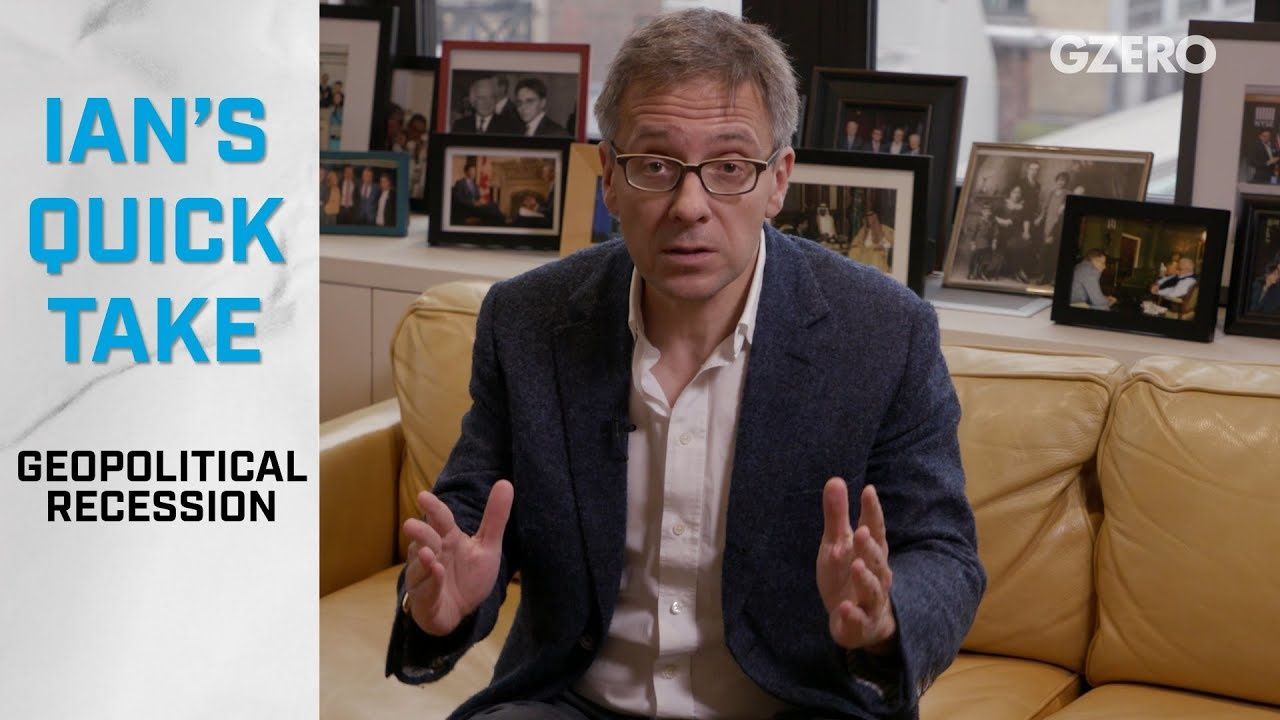Science & Tech
Ian Bremmer: The World's Geopolitical Recession

Ian Bremmer: The World's Geopolitical Recession | citizens, government, institutions | GZERO Media

Ian Bremmer, in the midst of a serious global crisis, explains what a geopolitical recession is - because we're in one. And it makes the ability to respond to coronavirus a lot more difficult than it normally would be.
We have economic recessions, boom and bust cycles, every seven years on average since World War II. We have tools to respond in terms of stimulus and fiscal expansion and monetary easing. And we even can identify and define a technical recession as when you have two consecutive quarters of negative growth.
Geopolitics have boom and bust cycles, too. We've been in a geopolitical boom cycle for a long time. We're now in a bust cycle. The end of the US led global order - a GZERO World, not a G7 or a G20. This geopolitical recession makes it a lot harder to respond to a crisis. The political institutions are less resilient. There are three different ways that that plays out, three different components of the geopolitical recession:
First is inside the United States, inside our democracies. We have a lot more feeling of illegitimacy, feeling that the system is rigged against the citizens. And therefore, less willingness to support leaders who need to lead. There's no willingness to work together. And it's not just in the United States. We see this playing out in Brazil today with President Bolsonaro and forces against him. We see it playing out in other countries across Europe with real challenges internally for those governments. So a geopolitical recession, first and foremost, weakening and de-legitimizing democracies around the world.
Secondly, a geopolitical recession in the alliances around the world and the ability of international politics to be run in a stable and consistent way. Not only do you have a lack of coordination in responding globally to a global crisis, but you also have global leaders actively blaming each other.
Then you have the institutional side, which is the institutions themselves are increasingly not aligned to the geopolitical order, so they can't respond very effectively. This is geopolitical recession, a bust cycle in the geopolitical order: the institutions are not aligned with the geopolitical balance. Because the alliances and the relations between countries are increasingly focusing not on coordination, but instead on what they need for their own national interests. Every nation for itself. And also, inside democracies around the world, both advanced industrial democracies and emerging market democracies, you increasingly have political polarization, blames-man-ship and a sense that the system and its establishment is rigged against the average citizen. If you have all three of those things, there should be no surprise that the ability to respond the coronavirus, effectively to the biggest global crisis we've had since 2008, and maybe larger than that, is going to be very, very severely lacking.
The Supreme Court has struck down President Trump’s use of the national emergency clause to impose sweeping tariffs around the world. In this Quick Take, Ian Bremmer explains why this ruling was predictable and why it’s a major setback for Trump’s trade strategy.
Think you know what's going on around the world? Here's your chance to prove it.
2.5 million: The population of Gabon who can no longer get onto certain social media platforms, like YouTube and TikTok, after the government suspended access on Tuesday.